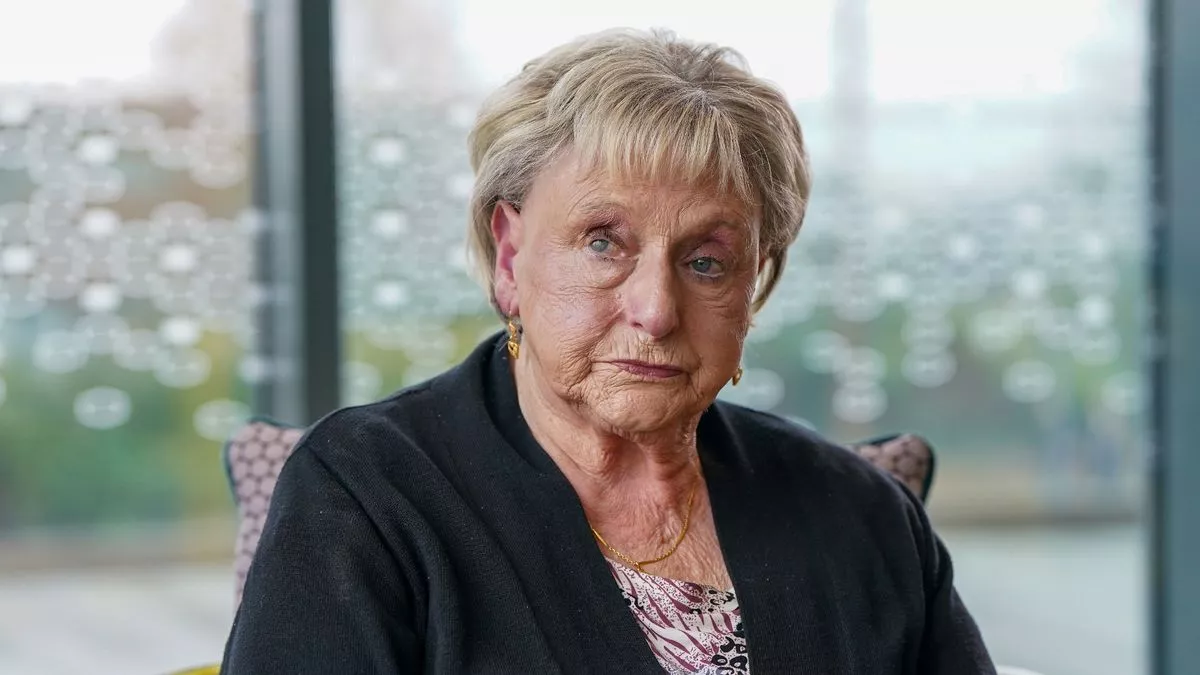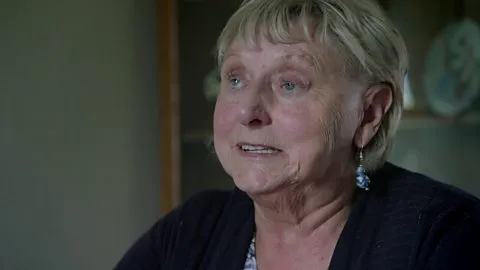

Ann Ming’s Relentless Fight for Justice Inspires ITV’s ‘I Fought the Law’
A Mother’s Tragic Loss and Unyielding Determination
In England, the story of Ann Ming is one of heartbreak, resilience, and historic legal reform. Following the tragic murder of her 22-year-old daughter Julie, Ming embarked on a decades-long campaign to challenge one of the oldest laws in the U.K. legal system: the double jeopardy rule. For over 800 years, this law prevented individuals from being tried twice for the same crime. However, thanks to Ming’s tireless advocacy, the law was reformed, opening the door for justice in Julie’s case.
Now, her remarkable story is brought to life in the four-part ITV drama series I Fought the Law, starring acclaimed English actress Sheridan Smith as Ann Ming. The series, produced by Hera Pictures in association with All3Media International, chronicles her relentless pursuit of justice and the landmark legal changes she helped bring about.
The Tragic Beginning: Julie Ming’s Murder
Ann Ming’s journey began with unimaginable loss. Her daughter Julie was brutally murdered at just 22 years old, leaving a void that no parent should endure. The initial investigation and subsequent trial were fraught with challenges, including police failings and legal obstacles that allowed the killer to initially evade justice.
The double jeopardy law, which had stood for centuries, meant that the man accused of Julie’s murder could not be retried once acquitted. For Ann, this was unacceptable. She saw firsthand the injustice of a system that allowed a killer to escape accountability despite overwhelming evidence. This fueled her determination to fight for legal reform.
The Campaign to Overturn 800 Years of Legal History
Ann Ming’s campaign spanned 15 years, culminating in the Criminal Justice Act 2003, which created an exception to the double jeopardy rule for serious offenses. This reform allowed for retrials in cases where new and compelling evidence emerged, effectively giving families like Ming’s a second chance at justice.
Her campaign was monumental. She faced opposition from multiple levels of authority, including the Crown Prosecution Service, the Law Commission, prominent defense barristers, the government, the Lord Chancellor, the Attorney General, and even two Home Secretaries. Yet Ming’s persistence, passion, and moral clarity enabled her to navigate these challenges and push for meaningful change.
From Book to Screen: ‘I Fought the Law’
The ITV drama series is based on Ming’s book, For the Love of Julie, which details her relentless pursuit of justice and the fight to reform the double jeopardy law. Written by Jamie Crichton, known for All Creatures Great and Small, The Last Kingdom, and Grantchester, the series faithfully adapts Ming’s memoir for television.
Sheridan Smith, celebrated for roles in Cilla, Mrs Biggs, and Gavin & Stacey, embodies Ann Ming with depth and authenticity. Ming herself expressed admiration for Smith’s portrayal: “They couldn’t have picked anybody better than Sheridan Smith. She is really the best actress.” The casting adds emotional resonance to a story that is both deeply personal and legally significant.
The Emotional and Legal Journey
I Fought the Law not only explores the emotional devastation caused by Julie’s murder but also highlights Ming’s steadfast legal battle. The series delves into:
-
The personal toll of losing a child and living with decades of grief.
-
The frustration and obstacles encountered when confronting an entrenched legal system.
-
The meticulous, patient work required to amend centuries-old legislation.
Hera Pictures describes the drama as “the powerful true story of a mother’s relentless fight for justice following the disappearance of her beloved daughter Julie.” By combining emotional depth with historical context, the series illuminates the broader implications of Ming’s advocacy for justice reform.
Ann Ming: A Role Model of Resilience
Throughout the campaign, Ming demonstrated extraordinary courage and resilience. Despite facing systemic resistance and the weight of centuries of legal precedent, she remained steadfast in her pursuit of justice. “I am quite a strong person, but I mean, I never had the challenge of changing the law, but I’m glad I did it now,” she told The Hollywood Reporter.
Ming’s work exemplifies the potential for individuals to influence systemic change. As Hera Pictures founder Liza Marshall observes, “Ann is a complete shining example of what you can do if you put your mind to something, and how, even if the doors close in your face, you just keep pushing through.”
The Historical Significance of the Double Jeopardy Reform
The Criminal Justice Act 2003 marked a turning point in British legal history. By creating exceptions to the double jeopardy rule, it enabled retrials in cases where:
-
New and compelling evidence emerges.
-
Serious offenses warrant a second examination of the case.
Julie Ming’s murder case became one of the first high-profile examples where the law was applied, resulting in a 2006 conviction and life sentence for her killer. This landmark case demonstrated how legal reform can deliver justice even after decades of injustice.
Collaboration and Creative Process
Ann Ming played an integral role in the production of the ITV series. She reviewed scripts and contributed to ensuring the accuracy and emotional authenticity of the story. “When he did the script, he sent it to me to have a look at it, and if I felt there was anything to alter, we altered it,” she said. Her involvement highlights the collaborative nature of the project and ensures that the drama remains true to her lived experience.
Hera executive producer Charlotte Webber emphasizes Ming’s determination: “Ann was going up against the establishment and various different organizations… whoever she came across, she looked them in the eye, and as a mother, told them how this happened.”
Raising Awareness Through Drama
One of the series’ objectives is to expand public awareness of Ann Ming’s extraordinary campaign. While local communities knew of her efforts, many across the U.K. were unaware of her pivotal role in legal reform.
Ming hopes the series will inspire others: “If you think something’s wrong and you think that it should be changed, well, you do it. Keep that thought for the day: If it’s wrong, change it to right.” By telling her story, I Fought the Law serves as both a tribute to her daughter and a call to action for justice and perseverance.
ITV Release and Documentary Companion
I Fought the Law premieres on ITV and STV on Sunday, Aug. 31, with streaming available on ITVX and STV Player. The drama will be accompanied by a documentary titled I Fought the Law: The Ann Ming Story, providing an in-depth look at the real-life events and legal battles that shaped the series. This combination ensures that viewers experience both the emotional drama and factual account of Ming’s journey.
Conclusion: Ann Ming’s Enduring Legacy
Ann Ming’s story is one of grief, determination, and historic legal achievement. Her campaign not only brought her daughter’s killer to justice but also redefined centuries-old legal precedent in the U.K.
Through ITV’s I Fought the Law, her remarkable journey reaches a wider audience, showcasing the extraordinary courage and resilience of a mother who refused to accept injustice. As Ming’s story demonstrates, even entrenched systems can change when fueled by determination, common sense, and unyielding advocacy.
Her legacy is a testament to the power of individual action, inspiring not only victims’ families but also society at large to confront injustice and fight for what is right.




















